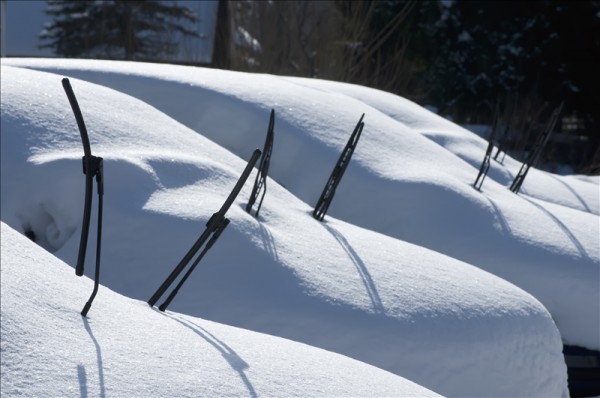Guest post by Tony Payne, VP Business Development, Clark Insurance.
Many of the most frequent and costly insurance claims for businesses are winter-related accidents. With cold weather approaching, property owners need to take steps now to avoid injuries as well as property and liability claims. Here are several hazards to avoid and things you can do to control your risks now and through the dark days of winter.
Slips, trips and falls
Employers can protect their employees from serious injuries by keeping pathways, steps, loading docks and parking lots shoveled, plowed, salted and sanded. Failure to do so can result in costly workers’ compensation claims, loss of employee productivity and most importantly, an injured co-worker.
What you can do
- Contract with an insured snow removal company and stipulate when snow removal, sanding and salting will occur.
- Keep salt and sand handy at all building entrances.
- Be sure areas between parked cars are sanded and salted.
- For customers or passers-by who slip on the premises (10% of business claims), having the right liability coverage is essential for businesses as injuries can include substantial medical bills, lost wages and defense costs. The average cost of a customer injury is $20,000.
- Be sure all pedestrian paths and steps are cleared, sanded and salted.
- If an injury occurs, take photos, get statements and document the date, time, place, witnesses, etc.
Snow loads on roofs and decks
Snow on the roof can be hazardous and expensive. When rain follows snow, the weight can more than triple causing roof, porch, awning and deck collapses.
What you can do
- Contract with an insured company to remove excessive snow from rooftops, porches, awnings and decks during the winter.
- Be vigilant in clearing roof-top drains before winter weather sets in.
Ice Dams
Though often associated with homes, commercial properties also need to avoid and address ice dams. In 2014-2015, insurers with customers in the Northeast received thousands of claims for water damage. Also, ice dams and icicles falling from buildings pose a danger as well as potential liability for the inattentive property owner.
What you can do
- Contract with an insured property maintenance company to clear ice dams and icicles.
Flooding
Flooding from the runoff of surface water is not covered by standard insurance policies. Flood insurance can be purchased through the National Flood Insurance Program but is limited in terms of what is covered.
What you can do
- Clear drainage pathways adjacent to commercial properties to allow water run-off.
- Be sure sump pumps are operational and outflow pipes are clear and away from the foundation.
Frozen pipes
Frozen pipes also pose a threat for businesses, particularly those that may have had recent construction or improvements that opened airways into the buildings.
What you can do
- Double check that insulation is properly in place near recent roof work.
- Close windows or vents that may be left open during mild months.
- Heating system tune-ups and guaranteed fuel delivery also can avoid freeze-ups.
- Don’t forget to either ban or limit the use of portable heaters. Forgotten, they can be left running overnight or weekends causing fire losses (average fire claims run about $35,000)
- Should water damage occur, be sure to call a recovery company that has industrial fans to thoroughly dry out affected areas and avoid the risk of mold and the health risks it poses.
Over-the-road travel
Over-the-road travel in winter is part of living in Northern New England. However, taking unreasonable risks in bad weather conditions has implications for employers whose employees are traveling in the course of their work. Though less than 5% of business claims arise from vehicle accidents, the average cost is approximately $45,000.
What you can do
- Have clear winter travel policies for employees.
- Remind employees in writing to travel safely including no texting.
Remember, what you do now and all through the winter months can save you from the shock of higher premiums should you have to make a costly claim for winter-related accidents.
This post was provided by Tony Payne, VP Business Development, Clark Insurance.


Leave A Comment